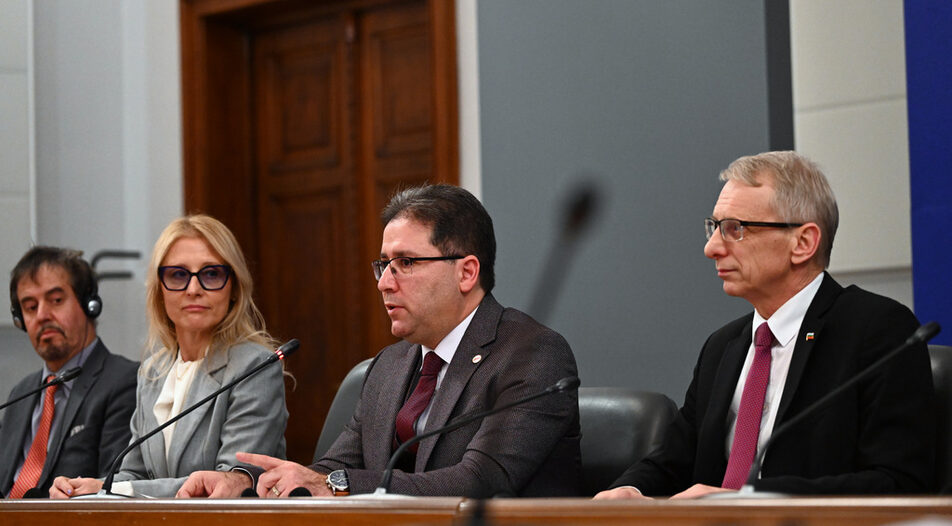Belgium's Avesta Battery & Energy Engineering (ABEE) proposes to invest 1.1 billion euro (2.2 billion levs) in a large-scale project for production of e-vehicle batteries in Bulgaria. The company intends to build a gigafactory, a recycling facility and an R&D center in three cities in southern Bulgaria -Stara Zagora, Burgas and Plovdiv respectively - thus closing the cycle.
If the plans materialize, which has to happen in the next three to five years, that will be the largest single investment in an industrial project in Bulgaria. Therefore the government undertakes to provide the maximum admissible state aid for the strategic project. The only uncertainty comes from the fact that the proposal is tabled not by a top global manufacturer in the sector but by a young Belgian company, which has recently announced intentions for a similar megaproject in Romania.
From research to product
The investment intention was recently presented at a press conference by Bulgarian prime minister Nikolay Denkov and the company's CEO Noshin Omar. It concerns the production of a new generation solid-state lithium-ion batteries for the automotive industry. The technology belongs to the Belgian company but further development is envisaged to be carried out at an R&D center in Plovdiv. Its construction has to begin by September 2024 and be the first stage of the investment program.
The next step will be the construction of a recycling factory in Burgas with a capacity to process 50,000 tonnes of end-of-life batteries a year. The location of the city on the Black Sea coast was the main reason why ABEE chose Bulgaria, as that would considerably facilitate logistics, Omar said. The launch of the project is expected in late 2024 or early 2025 but it will depend on how long the permitting procedures will take, Omar explained. The factory in Burgas will provide some 300 jobs out of a total of 1000+ for the entire program in Bulgaria.
The most jobs will be opened in the future battery plant in Stara Zagora - a coal mining region facing green transformation - as the third stage of the program, which will consume the bulk of the investment. In Omar's words, that will be one of the largest gigafactories in Europe. "We plan to manufacture 10 GWh of solid-state batteries a year as a start. At a later stage the capacity will reach 20 GWh," he said. The factory will run mainly on renewable energy.
The investor
ABEE was founded in 2019 by Noshin Omar, an engineer and researcher in the field of rechargeable energy storage systems. The company specializes in the development of battery and energy technologies for the automotive industry and other applications.
No information about its turnover was presented at the press conference but data in international corporate registers show a profit of about 2 million euro and assets topping 25 million euro at the end of 2022. The company employs some 20 people, so its main focus is on development. According to information on its website, ABEE manufactures 10,000 items a year.
The company's expansion is probably yet to begin. Last May ABEE announced it had signed a groundbreaking agreement for a 40 million euro investment in the production of battery management systems in North Macedonia. In July it emerged that the company plans to build a Li-ion battery factory in Galati, Romania, with a 22 GWh capacity and 8,000 employees. The investment, which is assessed at 1.4 billion euro, will not be made directly by the company: the project will be financed by investment banks, with financial aid from the Romanian government.
A similar mechanism is probably envisaged for the project in Bulgaria. Finance minister Asen Vasilev said the government would provide the maximum admissible state aid after notifying the European Commission.
Belgium's Avesta Battery & Energy Engineering (ABEE) proposes to invest 1.1 billion euro (2.2 billion levs) in a large-scale project for production of e-vehicle batteries in Bulgaria. The company intends to build a gigafactory, a recycling facility and an R&D center in three cities in southern Bulgaria -Stara Zagora, Burgas and Plovdiv respectively - thus closing the cycle.
If the plans materialize, which has to happen in the next three to five years, that will be the largest single investment in an industrial project in Bulgaria. Therefore the government undertakes to provide the maximum admissible state aid for the strategic project. The only uncertainty comes from the fact that the proposal is tabled not by a top global manufacturer in the sector but by a young Belgian company, which has recently announced intentions for a similar megaproject in Romania.












